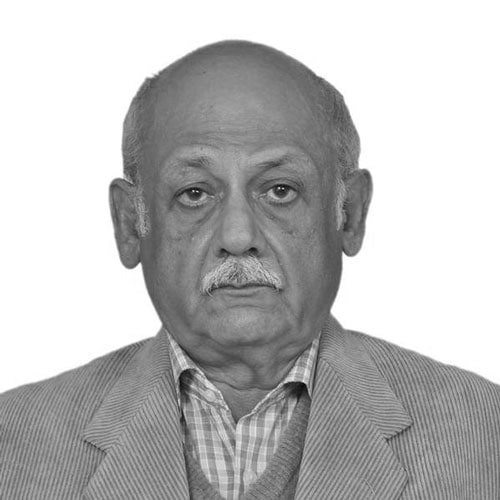India-Pakistan and the elusive peace
PAKISTAN and India have had a love-hate relationship since 1947 and it has been a roller coaster of acrimony, hatred, blame game and two bloody wars along with many border skirmishes resulting in the loss of lives on both sides.
There have been many attempts in the past to find a way-out of the tragic and painful reality of hostile relations between the two countries.
Both sides now have come to the realization that the thorny problem of Kashmir does not have a military solution.
Pakistan does not have the military might to forcibly wrest Kashmir from the Indian clutches and India cannot achieve a decisive victory in the difficult mountainous region of Kashmir.
The latest development in this area has been the very recent initiative of the Government of the UAE to restart the long stalled peace talks between the two countries.
Immediately after this in a sudden and surprise statement the Pakistan Army chief said, “It’s time to bury the past and move forward with India but India will have to create a conducive environment particularly in India-occupied Kashmir for talks to resume.”
Such developments and statements look like a breath of fresh air or the proverbial light at the end of the tunnel.
The two countries also made the surprise announcements to recommit themselves to the already existing cease-fire agreements all along the Line of Control and people living along the line heaved a sigh of relief after years of tension and loss of many lives as a result of firing from both sides by the two nuclear armed hostile neighbours.
The Director Generals of Military Operations of India and Pakistan also “reiterated that existing mechanism of hotline contact and border flag meetings will be utilized to resolve any unforeseen situation or misunderstanding.”
The Foreign Minister of the UAE Sheikh Abdulla Bin Zayed met the Indian-foreign Minister Subrahmanyam Jaishankar but for reasons unknown the official release issued after the meeting said, “They discussed all regional and international issues of common interest and exchanged views on them.” No mention was made of India-Pakistan peace initiative or anything related to that.
An Indian official in the know asked not to be identified said, “the ceasefire is just the beginning of a larger road-map to forge peace between the two countries.”
Hopefully the next step will be the reinstatement of Ambassadors who were recalled in 2019 when border tension was at an all-time high, to be followed by talks on trade and then leading to constructive and meaningful dialogue on the resolution of the Kashmir problem.
This new peace initiative was a thaw in the frozen relations between the two countries after many years especially after the rise in tension in 2019 when fighter aircraft of both countries clashed in aerial combat along the line of control.
Tension also heated up when India did away with Kashmir’s special constitution autonomy in 2019.
The role of the UAE as a peace broker was never confirmed by India or Pakistan, but the UAE welcomed the India-Pakistan joint statement and it was also welcomed by the USA and the United Nations.
The UAE also stressed that this is an important step towards achieving security, stability and prosperity in the region.
Another welcome development was that India and Pakistan both agreed to hold a meeting of the Indus Water Commission that had not been held for the last three years.
The contentious issue of Kashmir has been a bleeding wound and a bone of contention between the two countries since independence in 1947.
Strife and violence flared up greatly in 1989 when the manipulation of Kashmir politics by the Indian Government led to a popular uprising in the Valley and Pakistan saw this as a long-awaited opportunity that should be exploited.
After the Soviet withdrawal from Afghanistan again in 1989 and the influx of Kashmiri refugees in Pakistan and the availability of a large number of trained fighters, the Pakistani planners hit upon the idea of bleeding India through a Jehad policy using Muslim fundamentalists from the state patronized militant groups in Pakistan.
Officially Pakistan, of course, denied any such involvement but for the world at large it was an open secret.
This strategy of guerrilla war was supposed to be a low cost and low intensity conflict across the Line of Control leading to ending the stalemate and eventual victory and the end of the Kashmir problem.
Over the years many close encounters and the loss of thousands of lives on both sides it became crystal clear that the problem of Kashmir cannot be resolved militarily.
Pakistan and India both have to decide whether they can afford this hostility and dangerous confrontation in the future.
The enmity between the two neighbours is like a malignant tumour, a cancer expanding unchecked and with the capacity to destroy both countries if not checked now.
—The writer is Professor of History, based in Islamabad.










